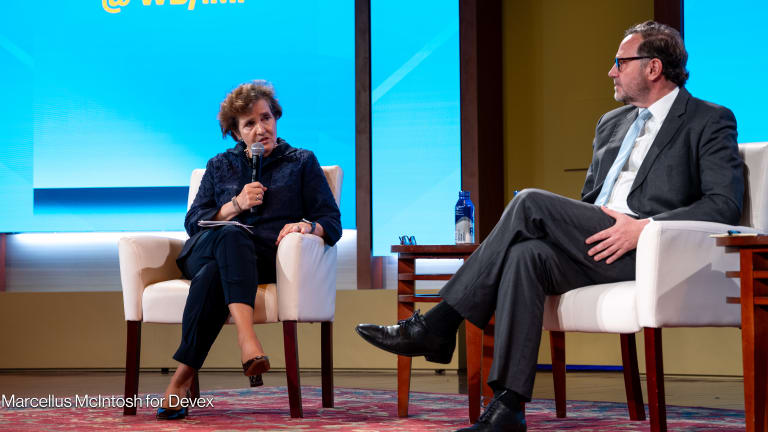
According to MCC's country scorecard, Georgia is faring quite well on the economic front, but needs to intensify human resource investments. Within its peer group, it currently has a percentile ranking of 12 percent and 48 percent in health expenditure and girls primary school completion, respectively.
The $395 million compact, currently in its fourth year, focuses on enterprise development and the rehabilitation of regional infrastructure.
Jim McNicholas, MCC's former deputy resident country director who took over as MCC's Georgia chief in mid-October, detailed some of the projects currently underway.
"The compact itself has a heavy focus on infrastructure [with] a major road in Samtskhe, which links Tbilisi to an underdeveloped region and also links it to Turkey and Armenia," he said at MCC's annual gathering of MCC country representatives in Washington last month. "It also focuses on the rehabilitation of a gas pipeline that provides gas to the domestic Georgian market, and water services in five major cities outside Tbilisi."
The compact's enterprise development component provides investments, loans, equity and grants to agriculture producers, with the hope of spurring job creation.
On the issue of donor coordination, McNicholas noted that although there hasn't been an integrated vision on the policy level, agency field offices have sought to coordinate their programs. And he noted that Georgians take the concept of country ownership seriously.
"They're hands-on to the degree appropriate and offer the [Millennium Challenge Account], which handles day-to-day management, both the guidance and room to do what they have to do," he said.
The strength of MCC's investments in Georgia lies in its local managers who are ready to learn and develop programs, he noted. Additionally, the identification and involvement of strong institutions and accountable individuals makes the programs more sustainable.
But all is not rosy. Managing expectations from U.S. stakeholders and Georgians can be quite a challenge, as each side expects to see results sooner rather than later, McNicholas indicated.
"The expectation at political levels in our host countries is a matter of translating the technical reality of project cycle management," he explained, "to ensure all the steps from design to procurement, through contract signing, through contract management, with the reality of the timing of that."
Despite these challenges, partnership opportunities still abound, particularly for local non-governmental organizations. An investment fund has been set up under the compact to provide revenue to Georgian nonprofits in rural areas in the near future. MCC is encouraging rural nonprofits to build their financial management capacities in order to improve their chances of having access to those funds.








